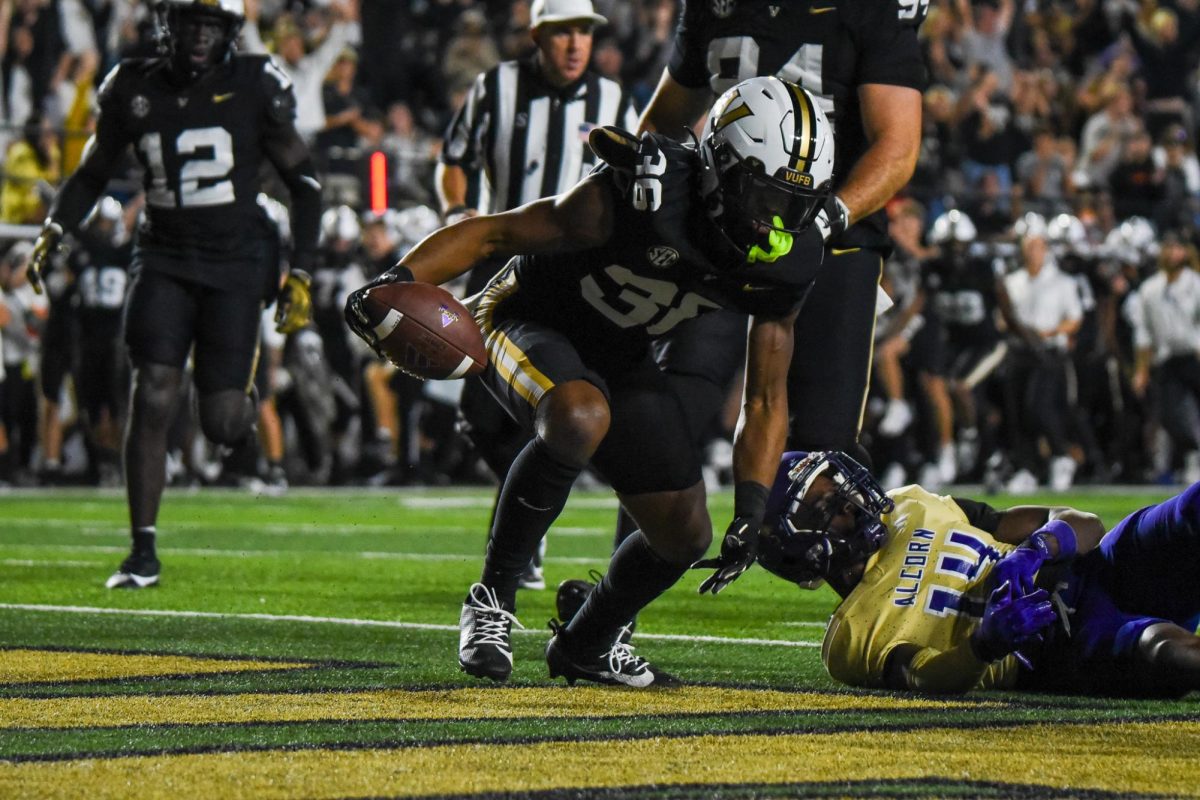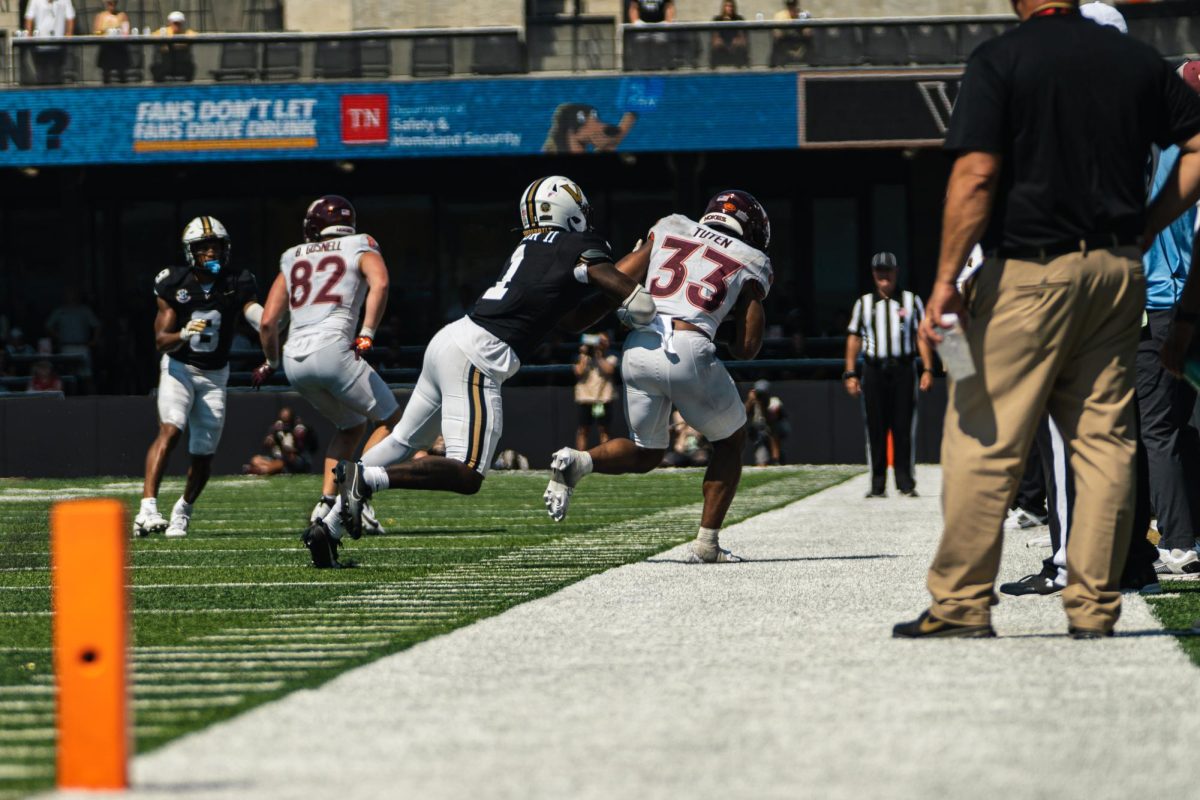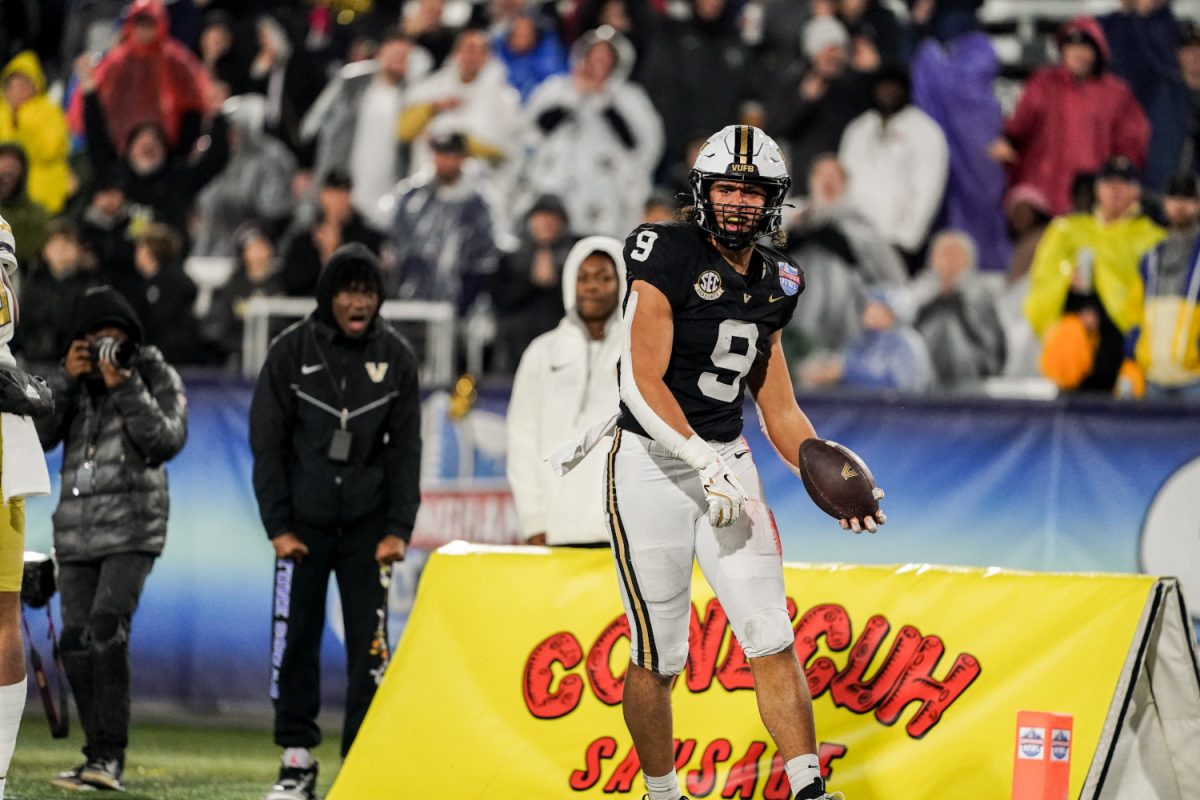When Vanderbilt fans hear the phrase “historic blowout,” they immediately assume the worst. But on Saturday, for the first time in years, Vanderbilt was on the winning end of one such blowout. Vanderbilt’s 55-0 triumph over Alcorn State was its biggest margin of victory since 2012 and the first shutout under head coach Clark Lea.
The historic magnitude of the Commodores’ victory is largely due to the shifty offensive scheme implemented by offensive coordinator Tim Beck and chief consultant Jerry Kill. In 2023, the duo willed New Mexico State to a 10-win season alongside starting quarterback Diego Pavia. Then, in the offseason, the trio brought their talents to West End and have since produced two of the most impressive wins in recent memory for Vanderbilt Football.
The Commodores dominated their nighttime matchup against Alcorn State, but the secret to the Black and Gold’s obliteration was their ability to burn lots of clock with each drive. Each drive that didn’t result in a Vanderbilt touchdown after the first snap, that is.
This edition of Data ‘Dores will examine an unintended consequence, or perhaps advantage, of the Beck playbook.
Passing time
An incomplete pass stops the clock: this is a fact that every coach and diligent fan knows. The Commodores have averaged 15 passing attempts per game through two weeks this season. Last season, the team averaged more than twice that, at 32.5 attempts per game. While Pavia has posted a 75.9% completion rate in 2024, he still favors an unpredictable, run-heavy playstyle. This approach bleeds a lot of time off the game clock.
Running the clock
It seems that a run-heavy offense might be a defense’s best friend. Against Alcorn State, Vanderbilt won the time of possession battle, controlling the ball for 31 minutes, 3 seconds to the Braves’ 28:57. Since 7:01 of Alcorn’s possession came on a half-hearted final drive in garbage time, a more accurate depiction of Vanderbilt’s dominance would be the first half. Through the first 30 minutes, Vanderbilt controlled the game for 17:53 to its opponent’s 12:07.Spending less time on defense means fewer opportunities for the other team’s offense. In its win over Virginia Tech, Vanderbilt averaged 30.92 seconds per play and spent 34:42 on offense to the Hokies’ 25:28. The Commodores averaged 33.87 seconds per play in Week Two. For reference, in Vanderbilt’s first two games last season against Hawaii and Alabama A&M, the offense averaged 30.45 seconds and 25.12 seconds per play, respectively. Additionally, the ‘Dores held possession for only 28:25 and 27:38 against Hawaii and Alabama A&M.
Time flies
Vanderbilt’s plays take longer, and ultimately fewer offensive plays are executed. Since the Commodores favor the ground game, the clock is constantly running. Fewer plays typically means less scoring, so, for Vanderbilt, the best defense might just be a good offense. Against Virginia Tech and Alcorn, Vanderbilt averaged 30.92 seconds and 33.87 seconds per play, respectively. This is a stark contrast to last year, when the Commodores averaged 30.45 seconds and 25.15 seconds per play in its first two games.
Thanks to the longer plays, Vanderbilt’s games thus far have seen drops in total plays as opposed to last year. In Vanderbilt’s games against Virginia Tech and Alcorn State, a combined 128 and 97 plays were run in the respective games. Last year, Vanderbilt combined with Hawaii and Alabama A&M for 116 and 132 plays, respectively. This year’s average plays per game (112.5) is far less than last year’s (124), and that doesn’t even account for the fact that the Virginia Tech game went into overtime. While the season is still young, Vanderbilt’s game plan will likely create a similar pattern through the rest of the season.
Football is a game of narrow margins, so shaving 10 plays off of games might turn out to be a blessing or a curse for Vanderbilt. Commodore faithful might see this as an absolute win — high-profile opponents will have fewer opportunities to run up the score. Regardless, with fewer plays to run, each snap becomes that much more meaningful, and Lea and Co. will have to make the most of each play to win what will likely be many close games down the line.
The Commodores will look to keep the clock running during their matchup on the road against Georgia State on Sept. 14 at 7 p.m. DCT











